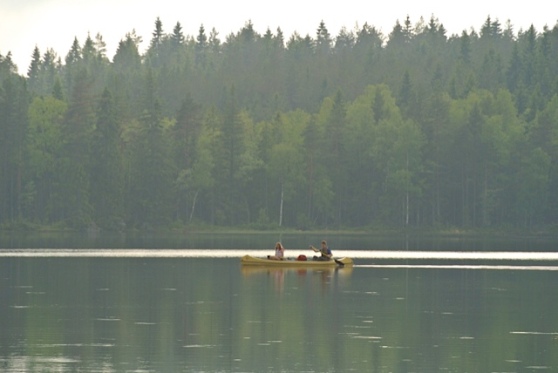Its been a busy weekend in Sweden. Its Spring, so there is a buzzing in the air. Its Pentecost, which escapes the notice of a large part of the world, but which has deep meaning for us who follow Jesus, as the day when the Holy Spirit was “poured out” on believers after Jesus’ death and resurrection, making possible the continuing work of God in the world through his people. Yesterday there was a “Jesusmanifestation” in Stockholm, which has become an annual event the last 5 years or so, when Christians of all persuasions take to the streets to celebrate their identity as believers. This is particularly significant in Sweden where faith is seen as something private, not to be displayed to the world; the Jesusmanifestation gives Christians a chance to do something rather countercultural, to acknowledge with pride the one they believe in.
But most Swedes think little about Pentecost; they recognize the word, “Pingst” in Swedish, since it is a holiday, but its meaning is lost on them. For most Swedes yesterday the focus of their attention was not the coming of the Holy Spirit but the annual Eurovision Song Contest, which is celebrated in Sweden with religious fervor. Along with the majority of the Swedish population we gathered around the TV set last night so see this musical extravaganza, which I have to admit I enjoyed more than I have in years.
The winner was Denmark, with a fairly meaningless song sung by a very cute girl called Emelie. France had opened the evening with a particularly dark song about hell, which did not exactly set the tone for the celebration of friendliness that followed, but thankfully things got better (for the most part). My favorite tune was from Malta with a silly song about someone called Jeremy, sung by a young doctor who made me happy by his smile. Russia chimed in with a catchy song (written by a Swede) about unity and reaching out to the needy, catching the theme of Eurovision since its inception 57 years ago as a musical contribution to peace, so longed for after some 30 years of Europeans killing each other in two world wars.
It is easy to be critical of events like Eurovision. We Christians are famous for picking on such celebrations as godless tributes to the empty promises of humanism. Indeed, some even see in Eurovision something sinister, vaguely evil, a wolf in sheep’s clothing. Similar criticisms have even been made of the European Union itself, which was also conceived as a means to prevent the tragedy of European conflict which had so horrified the world over the previous decades. Indeed there are aspects of Eurovision that are worrying for us believers, but I think our anxiety is misplaced.
God is never silent. He speaks into every situation and I found myself listening in last night’s performance for what he was saying. I remember a friend in Mercy Ships who always used to speak about how God “hijacks” situations, taking over with his agenda even when other plans have been made. I wondered if he would hijack the Eurovision song contest. It came, I believe, with the English contribution, though Bonnie Tyler was a long way from winning the competition with her song, Believe in me. But listen to the words. If this is not Jesus challenging the world then what is?
What ya gonna do when your ship is sinking?
And you’re crying out for help and just the seagulls listening
In the dark of the night, in the middle of the fight
When you’re reaching out for something and there’s nothing
Believe in me, yeah
Believe in the way I look at you and stand beside you
The way I speak the truth, I’d never lie to you
If you’d just believe in the things that your eyes can’t see
I read this morning the vision for the world of an ancient prophet of Israel, his name, Joel:
Our God, be kind and bless us! Be pleased and smile. Then everyone on earth will learn to follow you, and all nations will see your power to save us. Make everyone praise you and shout your praises. Let the nations celebrate with joyful songs, because you judge fairly and guide all nations. Make everyone praise you and shout your praises. Our God has blessed the earth with a wonderful harvest! Pray for his blessings to continue and for everyone on earth to worship our God. (Joel 3:1-7)
It could almost be a Eurovision song!
